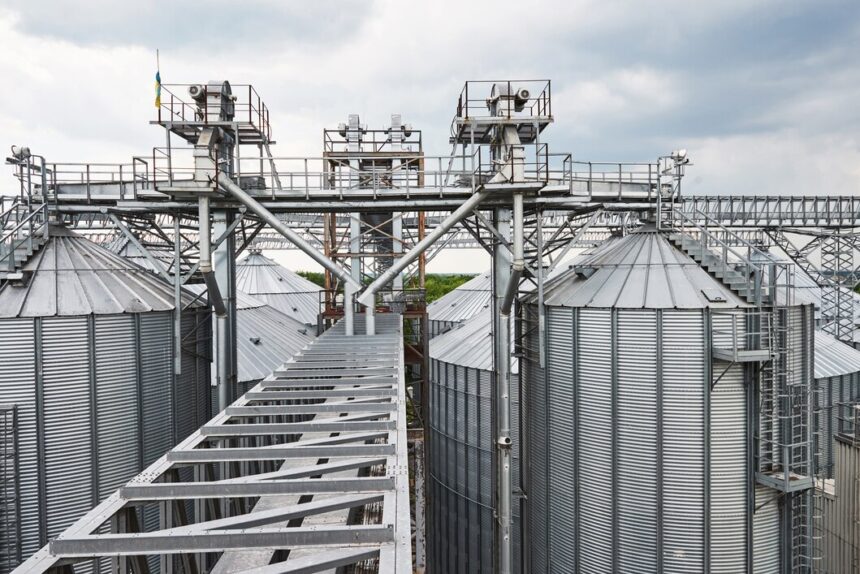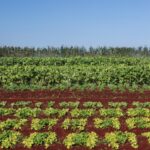As energy costs continue to rise and environmental concerns gain more prominence, South African farmers are increasingly exploring sustainable alternatives to traditional energy sources. One such solution is biogas production – a renewable energy source that converts agricultural waste into usable energy. Biogas not only offers a cost-effective way to manage waste but also provides an opportunity for farmers to produce their own electricity and reduce their carbon footprint. Here’s how South African farmers can turn waste into energy by producing biogas.
What is Biogas?
Biogas is a mixture of gases, primarily methane and carbon dioxide, produced through the anaerobic digestion of organic matter. In the context of agriculture, biogas is generated when farm waste like manure, crop residues, and food processing by-products break down in an oxygen-free environment. The gas produced can be used for cooking, heating, electricity generation, and even as a vehicle fuel after purification.
Why Should South African Farmers Consider Biogas Production?
1. Energy Savings
Farmers can significantly reduce their reliance on expensive grid electricity or fossil fuels by producing biogas on-site. Once the initial infrastructure is in place, the energy generated from biogas is essentially free, apart from minor maintenance costs. This can lead to substantial savings over time, especially for farms with large energy needs for heating, irrigation, or processing.
2. Waste Management
Biogas production offers a sustainable way to manage farm waste. Rather than leaving organic waste to decompose and release harmful greenhouse gases, farmers can channel it into a biogas digester. This not only prevents pollution but also helps in controlling odor and reducing the spread of diseases related to waste accumulation.
3. Environmental Benefits
By converting waste into energy, biogas production helps reduce methane emissions—a potent greenhouse gas responsible for global warming. Additionally, the process reduces the need for chemical fertilizers, as the by-product of biogas production, known as digestate, is a nutrient-rich organic fertilizer.
4. Income Generation
Excess biogas produced on farms can be sold to nearby households or businesses, creating an additional income stream. Alternatively, farmers can sell surplus electricity generated from biogas back to the national grid under the government’s Renewable Energy Independent Power Producer Procurement Programme (REIPPPP).
Steps to Start Biogas Production on Your Farm
1. Assess Your Farm’s Waste Availability
The amount of biogas a farm can produce depends on the volume and type of organic waste available. Conduct an audit of the waste generated on your farm, including manure, crop residues, and food processing waste. A farm with a consistent supply of organic material is well-suited for biogas production.
2. Choose the Right Digester System
There are different types of biogas digesters to consider, depending on the scale of your farm and the type of waste you produce:
- Fixed-dome digesters: Ideal for small to medium-sized farms. These systems are relatively inexpensive and can be built using local materials.
- Floating-drum digesters: Suitable for larger farms with more complex waste streams. These digesters are more efficient at handling larger volumes of waste but can be more costly to install.
- Plug-flow digesters: Used primarily for livestock operations, particularly where manure is the main feedstock. They are suitable for farms with a high volume of slurry.
3. Ensure Proper Maintenance and Monitoring
For biogas systems to function optimally, regular maintenance and monitoring are essential. Farmers should keep the digesters free from contaminants (such as plastics or metals) that can interfere with the anaerobic digestion process. Monitoring gas production levels, temperature, and pH levels is also critical for maintaining efficiency.
4. Use the By-products
Beyond energy, biogas production creates digestate—a valuable by-product that can be used as a fertilizer. Digestate is rich in nutrients like nitrogen, phosphorus, and potassium, making it an excellent alternative to chemical fertilizers. By spreading digestate on crops, farmers can improve soil fertility while reducing the cost of synthetic inputs.
5. Consider Potential Financing Options
Setting up a biogas production system requires an initial investment in infrastructure, including the digester, gas storage, and electricity generation equipment. However, there are several financing options and incentives available to South African farmers. Programs like the Department of Trade, Industry, and Competition’s (DTIC) Green Energy Fund or initiatives from the Industrial Development Corporation (IDC) offer support for renewable energy projects, including biogas.
6. Work with Experts
To maximize efficiency and avoid technical issues, farmers should seek advice from biogas experts when designing and installing their systems. Many organizations in South Africa specialize in biogas technology and can offer guidance on everything from feasibility studies to system design and operation.
Challenges of Biogas Production
While biogas production offers numerous benefits, there are some challenges to consider:
- Initial Setup Costs: The installation of a biogas digester can be expensive, especially for large-scale operations. However, long-term energy savings and potential revenue from selling energy can offset these costs.
- Technical Expertise: Biogas systems require technical knowledge for efficient operation and maintenance. Farmers may need to invest in training or hire specialized staff.
- Fluctuations in Waste Supply: Seasonal variations in waste production can impact the consistency of biogas output. Farmers need to ensure a steady supply of feedstock to maintain production levels.
Biogas production is an excellent opportunity for South African farmers to turn waste into energy, reducing operational costs, managing waste efficiently, and contributing to a greener economy. With the right planning, infrastructure, and support, farmers can harness the power of biogas to benefit both their farms and the environment. By embracing this renewable energy solution, the agricultural sector can play a vital role in South Africa’s transition towards sustainable energy production.
Join 'Farmers Mag' WhatsApp Channel
Get the latest Farming news and tips delivered straight to your WhatsApp
CLICK HERE TO JOIN






